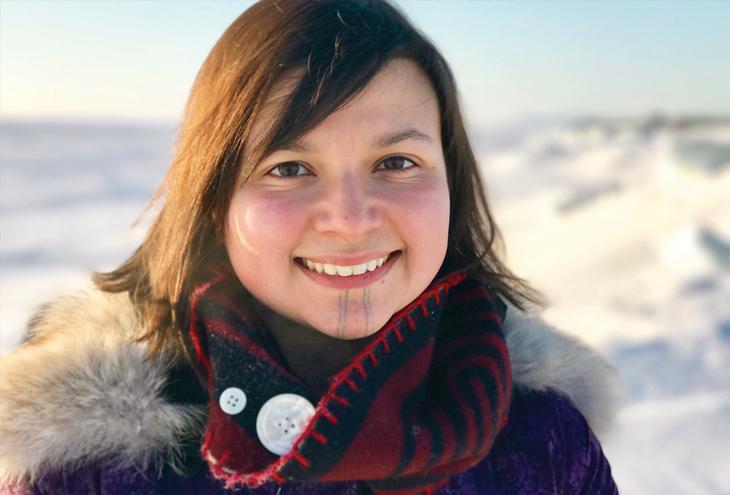My higher education path can best be described as “where there’s a will, there’s a way!” Even though my dad had gone to community college, no one in my family had gone to a traditional four-year college, or gone on to graduate school, so I didn’t really know what to expect. I found out it’s not always easy, but with passion and dedication you can do anything.
Growing up in Portland, Ore., and Alaska allowed me to keep in touch with both sides of my family, who were instrumental in helping me with my schooling. Unfortunately, my father died when I was only 11, but my mother made sure to impress upon me how important she believed a degree to be. From the time I was very young, my mother encouraged and supported my dream of going to college. I can remember being in middle school daydreaming about what kind of college I wanted to go to.
I was fortunate to go to an alternative high school where I could take community college classes in my junior and senior years. Not only did this allow me to graduate with a high school diploma and an associate’s degree, but also it exposed me to some of the most
influential teachers in my life, especially the professor who taught my Native American history courses.
One day when I walked into class, this teacher handed me a book written by a professor at Dartmouth College. She told me Dartmouth was a great school and I should look into it. I knew nothing about Dartmouth, and had actually thrown away an invitation they sent to visit the campus because I didn’t think I could get into an Ivy League school. But I trusted my professor, went to look at Dartmouth, and was thrilled when I was accepted.
I had thought that I wanted to get far away and see a new part of the world, but being thousands of miles from home, without the everyday support of my family, quickly lost its novelty. It took a while to make friends and find my place. Many of the students at Dartmouth were wealthy, and as a poor Native kid I just didn’t come from the same type of background. I was constantly worried that I wasn’t smart enough to keep up, and during the first few months I felt like the admissions department had made a mistake letting me in.
I was fortunate that the Native community at Dartmouth is inclusive and welcoming, and they became my support network. Once I found my footing socially, my academics started to come together. During my first semester at Dartmouth I took a class called Indian Country Today. We discussed contemporary issues in indigenous communities, including legal jurisdiction quandaries. This class helped pique my interest in law. I decided to major in Native American studies and minor in linguistics because it allowed me to build an interdisciplinary course of study in the context of indigenous peoples.
During the summers, I worked in a variety of jobs and internships, which helped me better understand my path in life. In Alaska, I worked for the nonprofit organizations Cook Inlet Tribal Council and Kawerak. These experiences inspired me to see what kind of changes we can effect in our communities through hard work and dedication. That was part of why I went into law — I want to make a positive difference in my community.
During the summers, I worked in a variety of jobs and internships, which helped me better understand my path in life.
Law school at the University of Oregon was the next logical step. While there, I worked hard both academically and in my extracurriculars. It was frustrating at first, because I was the only Native law student, and I struggled personally because again I didn’t feel like I fit in — like a box for the school to check to say that it is diverse. Fortunately, there is a strong support network for Native students at the university, and I made sure to become involved with groups that supported my Native identity. I worked hard to keep our Native American Law Student Association going so we could form a broad support network with other groups across the Pacific Northwest, and was elected president of the National Native American Law Students Association during my third year of law school.
Without help and support from my family, high school professors, and the Native networks I became involved in, I never would have flourished at Dartmouth and the University of Oregon. I frequently asked for help from people I trusted, which isn’t a sign of weakness — it’s a sign of strength and wanting to succeed.
In September I started work as a law clerk at the Native-owned Southeast Alaska Regional Health Consortium (SEARHC). I took the bar exam this summer and recently found out that I passed, so now I’m a staff attorney at SEARHC focusing on law related to health care.
I know that a major factor in my success has been my grit and determination. The college application process and college itself can be difficult, but don’t give up! Ask for help and reach out to people you look up to and to potential colleges for advice and support. It may look overwhelming — the essays, applications, scholarships, and
finances — but you can get there. After years of hard work, I’ve finally managed to get my JD, and I know that I made the right choice.











